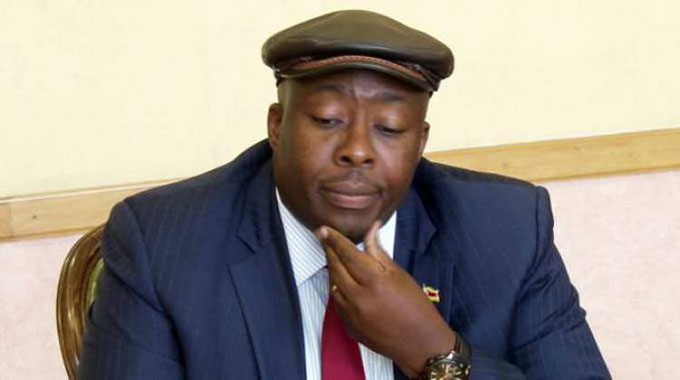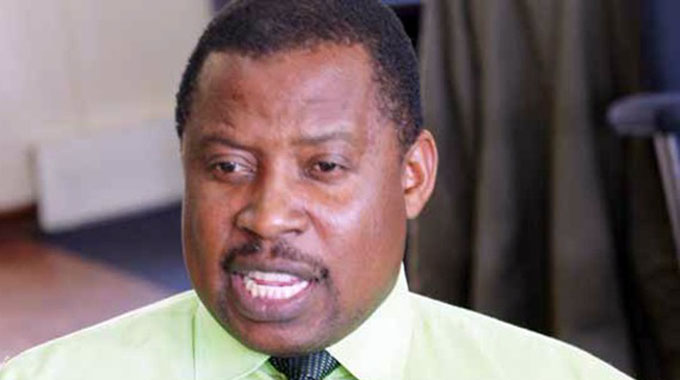Concern over prescription drug sales

Victor Maphosa
Herald Correspondent
HIGH consultation fees at private health facilities and delays at State health institutions is forcing desperate patients to by-pass medical practitioners and buy prescription drugs over the counter with pharmacists assuming the role of a medical practitioner for free.
Diagnosis is now being done by pharmacists or their assistants, who are not trained to do so, for the purposes of promoting their sales.
Name dropping is also rife in the illicit sales as names of reputable medical practitioners are inscribed on the pharmacy labels to cover up for the fraud.
An investigation by The Herald revealed that the information on the labels is false and concocted to dupe the regulating authorities. Consultation fees charged by private doctors range from US$10 to US$60, depending on the standards of the facility and its locality. Such amounts are beyond reach for many who get paid in local currency, hence preferring to illegally buy over the counter.
Public health institutions are cheaper, but some patients avoid the hassle of queuing for hours to get the service. While such an unholy alliance appears cheaper and more convenient, medical experts have condemned it, saying patients risk being wrongly diagnosed and issued with wrong drugs.
A survey carried out in Harare’s pharmacies exposed widespread fraud on the part of pharmacists who double as doctors in some cases.
Medicines Control Association of Zimbabwe (MCAZ) director-general Mrs Gugu Mahlangu condemned the practice. She said the practice was illegal and posed serious health problems to the patients.
“It is illegal and unethical for pharmacists to sell those drugs to people without prescriptions,” she said.
“A number of risks are associated with supply of prescription medicines without prescriptions, which include (but not limited to): treatment failure, since the patient would not have been assessed by the medical practitioner.
“The condition being treated could potentially get worse, leading to further hospital admissions, health complications and or death, adverse drug reactions and more worryingly, increased antimicrobial resistance resulting from improper use of antibiotics such as those you have cited above,” said Mrs Mahlangu.
She warned that such errant pharmacists or pharmacies risked losing their licences or being fined.
“The Medicines Control Authority of Zimbabwe (MCAZ) inspectorate department has inspectors who conduct inspections of licensed and unlicensed premises that sell medicines to ensure that they comply with these and other regulations. Offenders will either lose their licences or be fined,” she said.
During the investigation, The Herald sent a reporter to a pharmacy located along Angwa Street in Harare where a prescription drug called Cataflam was purchased without a doctor’s prescription. The reporter had never visited any medical facility nor a doctor, but simply picked a problem and pretended to be suffering from it resulting in the pharmacist prescribing the drug. The drug is used to relieve pain and swelling (inflammation) from various mild to moderate painful conditions.
It is used to treat muscle aches, backaches, dental pain menstrual cramps, and sports injuries. It also reduces pain, swelling, and joint stiffness caused by arthritis.
A pack of 15 tablets of Cataflam was bought for US$7,50 but no receipt was issued. However, the pharmacy label falsely indicated that Parirenyatwa Group of Hospitals was the institution that attended to the patient and prescribed the drug. Prior to visiting the pharmacy in question, The Herald had unsuccessfully tried to buy the same drug from other city pharmacies.
Another pharmacy in the city centre sold a drug called Doxycycline to The Herald undercover reporter for US$3 or $165. Doxycycline is an alternative drug in the treatment of gonorrhoea and syphilis, it also treats acne, Lyme disease, malaria, and certain sexually transmitted infections.
The pharmacy label shows that the reporter had been referred by a Dr Chimedza, whom he had never met. A receipt was issued for the drug, but quoted in local currency.
A different reporter bought 21 Amoxicillin tablets for US$2 from a pharmacy along South Avenue in Harare over the counter. No prescription was produced and neither did the pharmacy staff ask for it. The pharmacy label indicated that the reporter had been attended to at Masvingo Hospital, when he had never visited Masvingo.
Chairperson of the Progressive Doctors Association of Zimbabwe Dr Benson Dandira said medical practitioners in the private sector were losing out business to pharmacists.







Comments